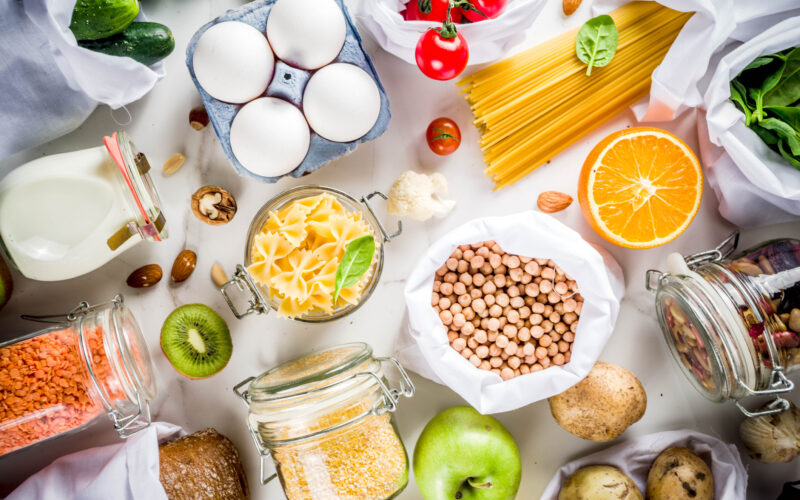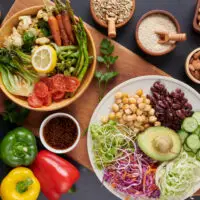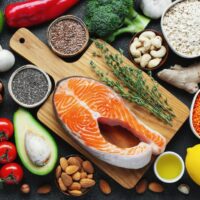An In-Depth Look at Why Organic Food Is a Hot Trend

Introduction
Eating organic is currently the hottest trend that hit food during the last few years. With people growing primarily concerned with health issues arising from genetically altered food, people are resorting to a more natural approach to get their food.
Couple that with rising ethical issues regarding the treatment and future viability of both plants and animals, and the call for an organic approach doesn’t only have the support of dieticians but also of environmentalists. But a big question begs to be answered. In this article, we’ll try to investigate why organic food is a hot trend and if it deserves to get all this hype.
There are so many ways to answer that question, to be honest. But arguably, you cannot see the reasons why organic food is a great option moving forward if you don’t know what being organic actually means. That’s where you’ll have to define what organic food is. To make it short, organic food is defined as food, regardless if the source is plant or animal, which is primarily produced without the assistance of synthetic pesticides and antibiotics. That’s pretty much every animal, plant, and human being on this planet.
There are so many reasons why organic food was created. And the satisfaction of each of those reasons is the central root for both its notoriety and long-term health benefits.
First, let’s take a look at the notoriety part. When looking at the labels of organic foods, the first thing that jumps to you is them stating that there are no toxic substances in these products. That is actually true.
That means food is devoid of traces of fertilizers and pesticides for plants. As for animals, that means food is devoid of hormones and artificially modified feeds. It’s already widely documented how these man-made substances ultimately reduce the quality of food that goes to everyone’s table. So eliminating these substances can simply be considered as a very welcome improvement.
As for the health benefits, it is somewhat comparable to the other recent food trends. Organic food producers claim that organic fruits and vegetables have higher levels of vitamin C, antioxidants, and the minerals calcium, iron, magnesium, and chromium. Those electrolytes, iron, and magnesium, are the components that help determine how much damage a food does to the arteries.
Now that people are going natural, it seems that they are realizing that a more natural approach to food is the best way to win the weight loss battle. Hence, more and more people are turning to organic food as a better choice than conventional ones.
The other recent food trend that is piecemeal and not organic is organic food mongering. Organic food products are grown under special conditions. They are riddled with tiny, commonly called chemical pests. Producers of organic foods do not use pesticides, fungicides, or chemical fertilizers.
They rely on biological pest control methods called “Share-D transferring”¹. This method of crop rotation and soil remediation is the only true way to grow organic food. Otherwise, crops are mulched with man-made materials or rates of loss of nutrients through the use of organic fertilizer.
Farmers who grow organic foods seek to preserve the quality of their crops by paying attention to the daily, weekly, and cumulative food practices of a typical farmer.
They are also keen on harmonizing the benefits of organic food with natural ones. The ongoing benefit of organic food is that it is rare, almost too rare to be able to find it, except in special operations. Organic farming requires constant attention to detail in order to farm and promote natural, sustainable crops and livestock using the most environmental, humane, economic principles.
As a result of this philosophy, organic farming has made huge inroads in bringing prices down. The conscious organic farmer is well aware that organic food production is higher in cost than conventional methods. But he or she knows that organic food is more environmentally friendly than conventional methods and gives value to the less expensive product—the biggest box: supermarkets.
The whole organic food craze may have surprised some, but the evidence is on the shelves. Organic alternatives are readily available, and the volumes are growing. Whether you are in the grocery store or the farmer’s market, you will see an increasing number of organic products.
This is not a sudden phenomenon. Organic food has been making waves in the food world for decades. Even before the term “organic” was even thought of, foods were being grown in ways that were friendly to the land and to the environment.
Conclusion
With the advent of a wider range of food choices, many people are shifting to organic methods only for their own health and benefit. As well as it promotes a healthier you, a healthier you will surely be a more Goldman-Sands momentous in your life.



